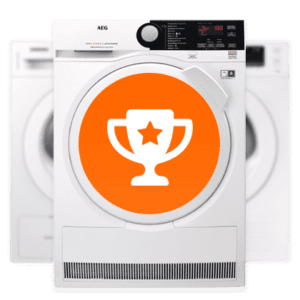Best buy tumble dryer
Just because Miele, Bosch, Siemens, AEG and Samsung are the best brands for tumble dryers, does not mean that they also have the best buy in their range. This is because washerdryers from these brands are generally a lot more expensive, and Miele in particular scores poorly when it comes to value for money, according to research by the Dutch Consumers’ Association. Do you need a new tumble dryer and want to know what the best buy is? Here’s our top 5! Every tumble dryer on this list delivers excellent quality and comes at a great price. Which dryer will soon be drying your laundry?
Best tumble dryers of 2024
Do you need a new tumble dryer, and would you like the best? You’ve come to the right place! According to extensive research by the Dutch Consumers’ Association, Miele, Bosch, Siemens, AEG and Samsung are the best brands for tumble driers. Washing machines from these brands are often more expensive to buy, but you get something for it. In terms of ease of use, longevity and drying quality, you can expect more from these brands. The list below shows the best tumble dryers available at the moment. In making this selection, we’ve looked at things like the fill weight, energy class, noise level and the different programs. This is the top 5 best tumble dryers of 2024.
- 1
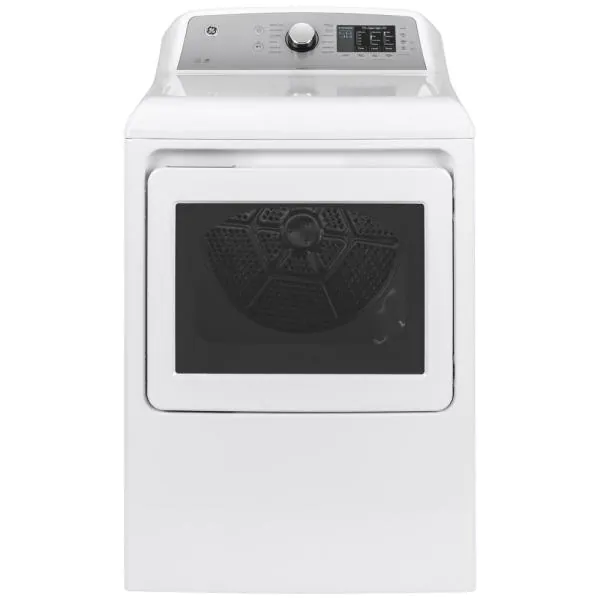
- 2
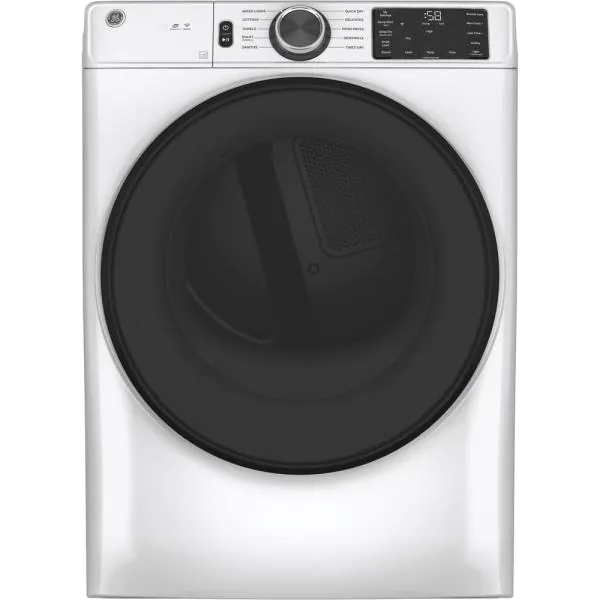
- 3
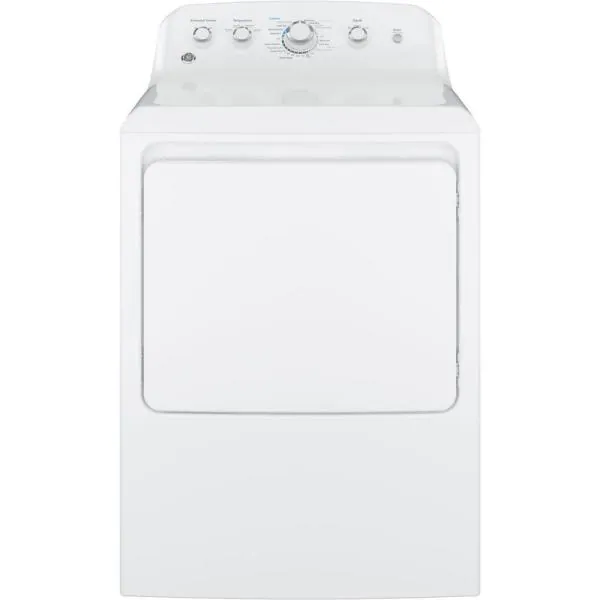
- 4
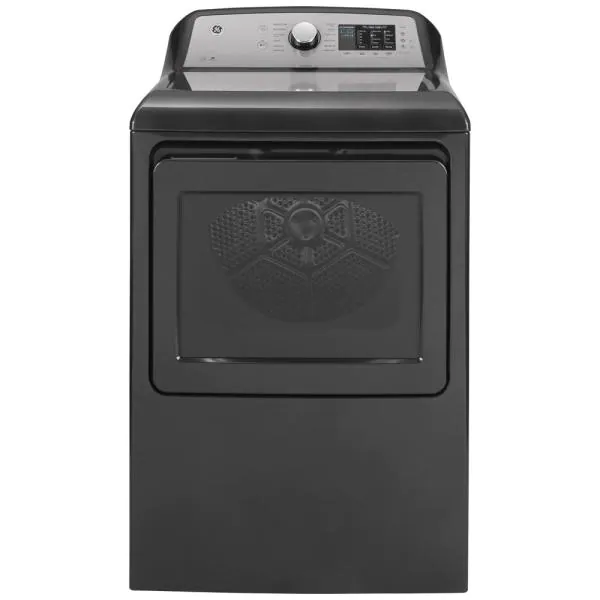
- 5
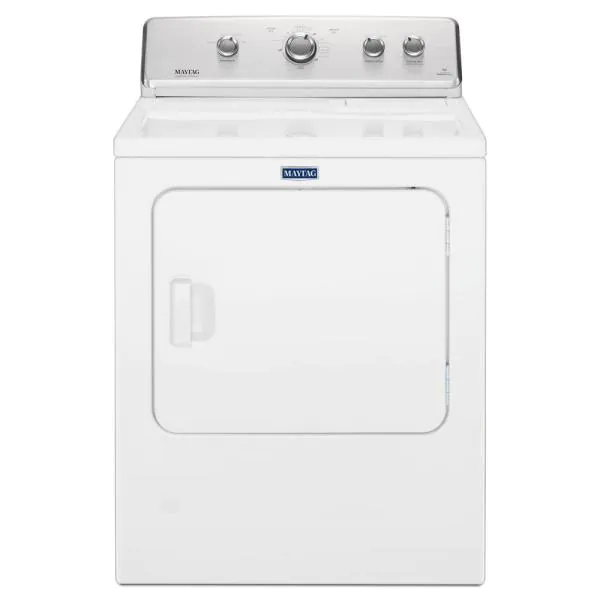

Best tumble dryer for a small budget
A tumble dryer is not a straightforward purchase, with prices starting at around £250 and going up to £2,250. And if you want a heat pump dryer – which we do recommend, because they keep your energy costs down – you’ll soon be out 350 euros. The brands Beko, Zanussi and Indesit offer several dryers in a lower price range, but also more expensive brands Bosch Samsung and AEG have several models for a friendly price. If you need a new tumble dryer but are stuck on a budget, we’re here to help. Because in the list below, you’ll find our top 10 cheap tumble dryers. Each of these is designed to give you the best drying experience and is available at a great price.
Best buy washer dryer; what to look out for
Don’t underestimate buying a new washer dryer. Not only because of the price, but also because there is more to it than you might think. After all, clothes dryers have a host of specifications that determine whether a particular clothes dryer will suit your family or not. Because sometimes you can’t see the wood for the trees when you’re shopping for a dryer, we’ve put together a list of tips for you. The following tips explain exactly what to consider when buying the best tumble dryer that is perfect for your household.
Types of tumble dryers
There are different types of tumble dryers; the airflow dryer, the condenser dryer and the heat pump dryer. Airflow dryers are becoming less and less popular day by day because they have a very high energy consumption. The opposite is true for heat pump dryers; they are the most energy-efficient dryers and are the most widely sold. The condenser dryer is somewhere in between. The difference between the condenser dryer and the heat pump dryer is that the heat pump dryer works with a heat pump and a refrigerant, while the condenser dryer dries with a heating element. For that reason, the heat pump dryer uses less energy. In addition, the warm air from a condenser dryer can be harmful to your laundry. Another way in which the airflow dryer differs from the condenser dryer and the heat pump dryer is the condensation drain. The air dryer drains the moist air during drying through a hose to the outside. This is done through a window or a hole in the wall. With condenser dryers and heat pump dryers, most models offer the choice of drainage via the water outlet or a reservoir. This is a condensation pan that collects the water, which you need to empty into the sink after each drying cycle. If you have a water drainage system in the room where you will be putting your dryer, we recommend you to go for this option. This way, you don’t have to worry about the humidity of the dryer. However, if you do not have a drain there, the condensate tray is a great alternative.
Fill Weight
The fill weight is one of the most important features of a dryer. This is because it determines whether the size of the dryer fits the size of your household or family. It indicates how many kilograms of laundry will fit into the drum. You want to buy a dryer with a fill weight that is in proportion to the number of people in your household. Otherwise, it can make drying more difficult and increase your energy costs. That’s because if you buy a dryer that’s too small, you’ll have to wash more often, which means you’ll use more energy. And if it’s too big, you’ll have to save laundry or wash it half-empty – which is a shame because it means you’re not getting the most out of the programme. That’s why we always recommend getting a dryer that has at least as much capacity as your washing machine. That way, you can be sure that all your wet laundry fits into the dryer. Buying a new washer dryer and washing machine? Use the following chart as a guide:
- A household of one or two people should consider a 6kg or 7kg dryer. A 6kg fill weight is not common, but a 7kg fill weight is.
- A family of 3 or 4 will need a dryer with an 8kg fill weight. Most dryers have a 8kg fill weight.
- A family of 5 or more will need a dryer with 9kg fill weight or more.
Energy rating
When looking for an energy-efficient dryer, look at its energy label. This tells you how efficiently the appliance dries. The type of dryer it is, largely determines how energy-efficient it is. An air vent dryer has a high energy consumption, a condenser dryer slightly less and the heat pump dryer is the most energy efficient. Energy-efficient heat pump dryers are expensive to buy, but because they are so efficient at drying, they save you a lot of energy costs. That’s why an A+++ heat pump dryer is often the most energy-efficient option. A heat pump dryer in energy efficiency class A+++ can save you up to 888 in energy costs compared to a condenser dryer in energy efficiency class B. This includes options like a self-cleaning condenser, lint filter, app-based controls, delayed start and an illuminated drum. Think you and your household could benefit from features like these? The noise level of a dryer indicates, in decibels (dB), the amount of noise it produces while it is drying. The noise level of most clothes dryers is nowhere near the noise level of the average washing machine. However, if you plan to use the tumble dryer at night, for example, it may be nice to have a quiet tumble dryer in your home. Dryers are divided into 3 categories when it comes to noise level: loud, normal and silent. A tumble dryer is rated ‘quiet’ if it produces less than 65 dB. Most dryers produce between 64 dB and 66 dB, but there are also several models that produce 63 dB or less.
Drying Programs
Dryers have different programs for different types of laundry. For example, there are special programs for wool, shirts, silk, bedding and towels. These programs ensure that your laundry is dried to perfection and that it lasts longer. Almost all modern tumble dryers also have an eco program, to further reduce energy costs. Many dryers also come with an ‘extra dry’ programme.
Building quality
The build quality of a dryer tells you about its sturdiness and expected lifespan. Looking at build quality, all dryers are divided into basic, mid-range and top-range. If the build quality is not specified for a tumble dryer, the brand and the price can also give an indication of the build quality. According to the Consumers’ Association, these are the best brands for tumble driers: Miele, Bosch, Siemens, AEG and Samsung. These brands are generally more expensive, and therefore score less well in the category ‘price-quality ratio’ according to research by the Consumers’ Association. Brands that score better in this category include Beko, Indesit and Zanussi.
Common questions
Buying a new tumble dryer is no easy task, so we are happy to answer all your questions about the different types of tumble dryers. If your question is not answered here, don’t hesitate to contact us or your local washer dryer supplier.
Which dryer dries the fastest?
A condenser dryer generally dries a lot faster than a heat pump dryer. A heat pump dryer uses low temperatures which means it takes longer for your clothes to dry. A condenser dryer uses a higher temperature which dries your laundry quickly. However, it uses a lot of energy, making it the less energy-efficient option.
Drying your laundry at a high temperature can also be harmful to your clothes. You reduce the chance of wear and tear if you dry it at a lower temperature.
What is a good affordable clothes dryer?
Sometimes you are stuck on a budget but really need a new dryer. Then of course it is nice to buy a cheap tumble dryer. However, be aware that cheaper dryers are often the least efficient – which means that your annual energy costs will actually rise. That’s why you should look for an energy-efficient heat pump dryer that offers good value for money. This will keep your energy costs down, but you won’t be paying more than you need to.
According to the Consumers’ Association, the Beko DS7331PX0BX is the best dryer with an excellent price-quality ratio.
What does a dryer cost per turn?
Aside from the purchase of your dryer, you also pay annually for the energy it consumes. Depending on the type of tumble dryer you have, these costs can vary per drying cycle. Drying with a condenser dryer will cost around 1.40 euros per drying cycle, and drying with a heat pump dryer will cost around 0.75 euros per drying cycle.
The exact cost will depend on your dryer’s energy class and the current level of electricity prices.
What should I look for in a clothes dryer?
When you’re looking at new clothes dryers, there are a lot of things to look for. Here are the key points:
- The right dryer for you will have the same fill weight as your current one or more.
- We say a dryer is energy efficient when it is rated A++ and above. Energy class b is the least efficient.
- The type of dryer can also be important; the most popular dryer at the moment is the heat pump dryer, followed by the condenser dryer.
- To get a quiet dryer, choose a low noise level. You have a choice of quiet, medium and loud.
- If you want to minimise maintenance, choose a dryer with a self-cleaning condenser.
- Most dryers have several different drying programs, find out if a dryer has the one you like.
What is the most energy-efficient tumble dryer?
An energy-efficient dryer is at least A++ energy, but A++ energy is the most efficient. Most dryers with a heat pump now have this, so there are many energy-efficient clothes dryers being sold.
How long does a dryer last?
How long a dryer lasts depends on several aspects, such as how often you use it, how well you maintain it as well as the build quality and brand. According to the Consumers’ Bid, Miele dryers last the longest, averaging 16 years. Other dryers have a life of 10 to 11 years.
